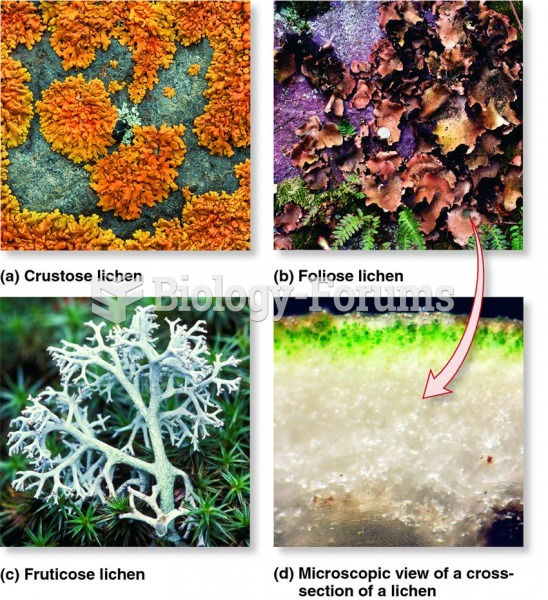This topic contains a solution. Click here to go to the answer
|
|
|
Did you know?
All patients with hyperparathyroidism will develop osteoporosis. The parathyroid glands maintain blood calcium within the normal range. All patients with this disease will continue to lose calcium from their bones every day, and there is no way to prevent the development of osteoporosis as a result.
Did you know?
The horizontal fraction bar was introduced by the Arabs.
Did you know?
In 1864, the first barbiturate (barbituric acid) was synthesized.
Did you know?
HIV testing reach is still limited. An estimated 40% of people with HIV (more than 14 million) remain undiagnosed and do not know their infection status.
Did you know?
The most common treatment options for addiction include psychotherapy, support groups, and individual counseling.







